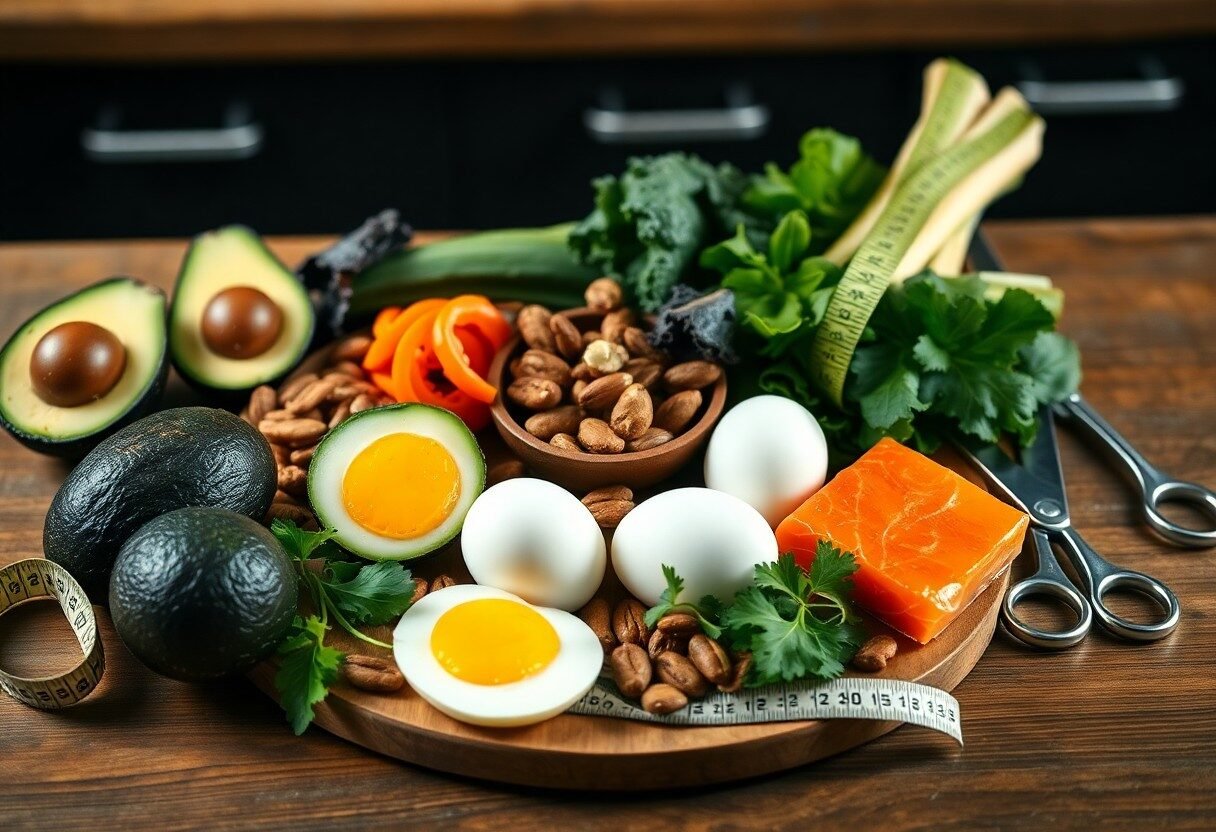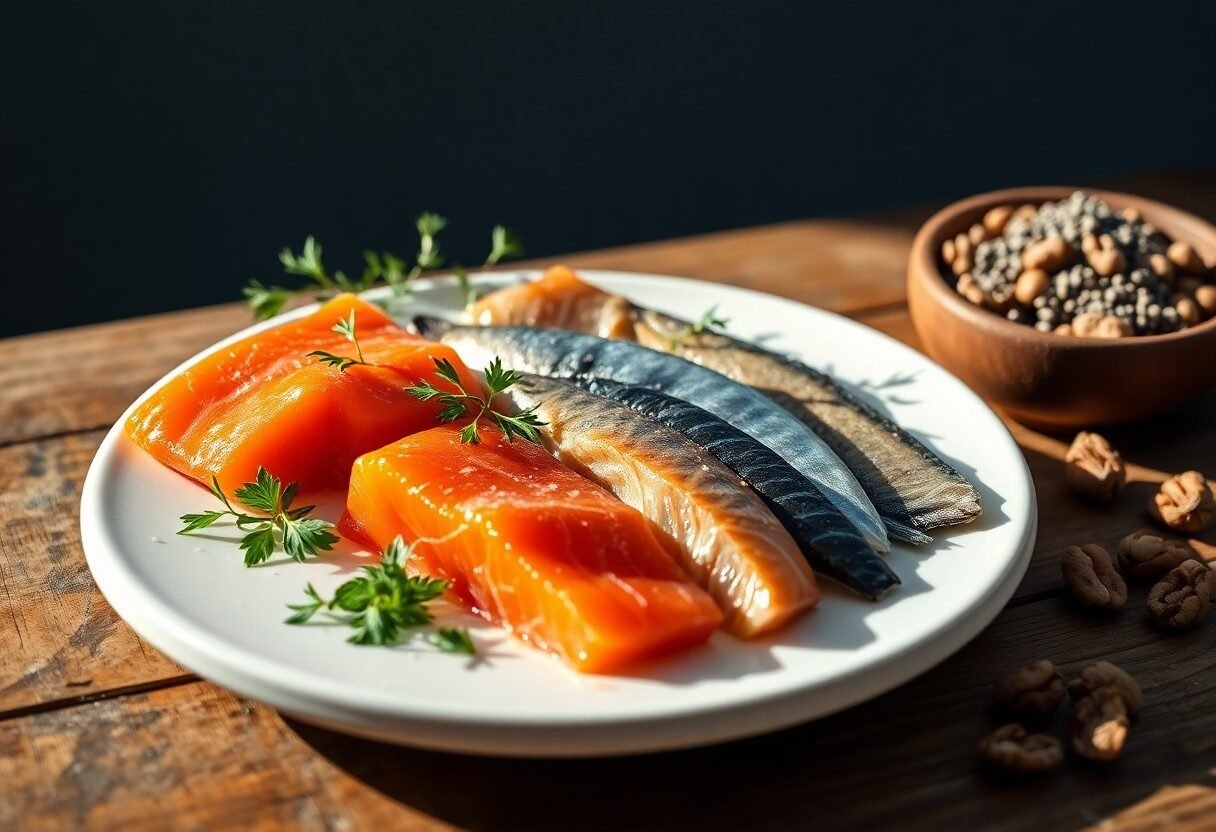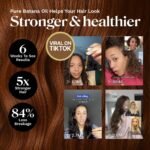
Nutrients play a vital role in your hair’s overall strength and vitality. As I probe into the connection between diet and hair health, you’ll discover how specific vitamins and minerals contribute to stronger strands. By incorporating foods rich in vital nutrients, you can combat issues like hair thinning and promote a luscious mane. From proteins to omega fatty acids, understanding these dietary vitals will empower you to make informed choices for enhancing your hair’s resilience and shine.
Key Takeaways:
- Protein plays a vital role in hair strength; incorporating lean meats, eggs, and legumes can enhance hair structure.
- Vitamins such as A, C, D, and E are important for maintaining healthy hair, promoting growth, and preventing hair loss.
- Essential fatty acids, particularly omega-3s found in fish and flaxseeds, contribute to scalp health and hydration.
- Minerals like iron and zinc are necessary for proper hair follicle function and can help minimize hair thinning.
- Hydration is vital; drinking enough water supports overall health, including that of the hair and scalp.
- A balanced diet rich in antioxidants can combat oxidative stress, thereby reducing hair damage and promoting longevity.
- Sufficient caloric intake is important; undereating can lead to hair loss as the body prioritizes vital functions over hair growth.
Unraveling the Nutritional Essentials for Luxurious Locks
Focusing on a diet rich in specific nutrients can dramatically enhance the appearance and health of your hair. Each strand benefits from vital vitamins, minerals, and proteins that promote strength and luster. By tailoring your meals to include the right foods, you nurture your hair from the inside out, paving the way for smoother, more radiant locks.
Macros vs. Micros: The Balance of Nutrients
Achieving optimal hair health involves harmonizing macronutrients—proteins, fats, and carbohydrates—with micronutrients, such as vitamins and minerals. While protein provides the building blocks for hair, healthy fats support scalp health and carbohydrates offer energy for growth. Balancing these elements in your diet can result in noticeable improvements in both texture and shine.
Identifying Key Vitamins and Minerals for Hair Strength
Essential vitamins and minerals play a significant role in promoting hair strength and growth. Nutrients like biotin, vitamin D, iron, and zinc are particularly noteworthy. Studies show that biotin deficiencies can lead to hair thinning, while iron helps to deliver oxygen to hair follicles, fostering growth. Consuming foods rich in these nutrients, such as leafy greens, nuts, and lean meats, ensures your locks receive the support they need to flourish.
Biotin, for instance, has been shown to increase keratin production in hair, leading to stronger strands. The body also relies on vitamin D for new follicle creation; thus, incorporating sources like fatty fish and fortified dairy can bolster your intake. Iron is indispensable in producing hemoglobin, which transports oxygen to your cells, including those in your scalp. Zinc not only aids in tissue growth but also helps repair damaged hair, making it crucial for maintaining a healthy mane.
The Role of Protein: Building Blocks for Radiant Hair
Protein serves as an necessary building block for hair, significantly influencing its strength, texture, and overall health. Keratin, the primary protein in hair, not only gives strands their structure but also contributes to their resilience against damage. Insufficient protein intake can result in weak, brittle hair and may even lead to hair loss. Focusing on adequate protein consumption in your daily diet can enhance not just the appearance of your hair but also its vitality and bounce.
Different Protein Sources and Their Benefits
To boost hair health, explore a variety of protein sources. Lean meats, such as chicken and turkey, provide high-quality protein necessary for keratin production. Fish, rich in omega-3 fatty acids, not only delivers protein but also nourishes the scalp. Plant-based options like legumes, quinoa, and nuts can be beneficial, especially for vegans and vegetarians, offering the necessary amino acids for hair strength and growth while being lower in saturated fats.
Timing and Dosage: How Much Protein Do You Really Need?
The amount of protein you need for optimal hair health can vary based on your overall diet, lifestyle, and individual health. Most adults require around 46 grams of protein per day for women and approximately 56 grams for men. Incorporating this protein throughout your meals, rather than in one sitting, ensures a steady supply of amino acids. If you’re active or aiming for hair growth, you might consider increasing this amount slightly to support your body’s elevated demand.
When evaluating your protein needs, consider not only your dietary restrictions but also your physical activity levels. For instance, those who engage in regular exercise or high-intensity workouts may benefit from consuming around 1.2 to 2.0 grams of protein per kilogram of body weight daily. This increase assists in muscle recovery and supports hair growth by supplying the necessary amino acids. Distributing your protein intake evenly across breakfast, lunch, and dinner is key—think scrambled eggs in the morning, a chicken salad for lunch, and lentils for dinner—to cultivate an environment for your hair to thrive.

The Fatty Acid Connection: Why Omega-3s Matter
Omega-3 fatty acids are key to maintaining the health of your hair. These necessary fats not only nourish the scalp but also improve hair density and shine. A deficiency in Omega-3s can lead to dry, lifeless hair that is more prone to breakage. By ensuring adequate intake, you contribute to a vibrant mane that feels soft and elastic.
Sources of Omega-3 and Their Benefits for Hair Health
Incorporating Omega-3-rich foods like fatty fish, walnuts, flaxseeds, and chia seeds into your diet can significantly enhance hair health. These sources provide vital nutrients that reduce inflammation and improve blood circulation to the scalp, which in turn supports healthy hair growth. Including just two servings of fatty fish a week can make a marked difference in your tresses.
The Relationship Between Fat and Hair Moisture
Healthy fat intake plays a direct role in maintaining hair moisture levels. Without adequate fat, your hair can become dry and brittle, losing its natural luster. Omega-3s contribute to the oil levels in your scalp, preventing dryness and flakiness while keeping strands hydrated and vibrant. Furthermore, these fats can improve hair elasticity and prevent split ends, leading to a more resilient mane.
By incorporating healthy fats into your diet, you’re not just contributing to your overall well-being but also ensuring your locks have the moisture they need to thrive. Omega-3s have a unique ability to support the production of sebum, the natural oil produced by your scalp. This oil acts as a protective layer, helping to lock in hydration and reduce frizz. Think of Omega-3s as your hair’s best ally in keeping it smooth, shiny, and well-hydrated, fighting off the common issues of dry or dull hair that many struggle with.
The Hormonal Influence: Diet and Scalp Health
The health of your scalp is deeply intertwined with your hormonal balance, which, in turn, is influenced by your diet. Hormones play an important role in regulating hair growth, and imbalances can lead to issues such as hair thinning or excessive shedding. Optimal scalp health relies on a well-rounded intake of nutrients that can help stabilize these hormones, creating a favorable environment for hair follicles to thrive.
How Diet Affects Hormones Related to Hair Growth
Your dietary choices can significantly influence hormone levels that affect hair growth. For example, foods high in refined sugars can lead to increased insulin levels, which may trigger hormonal imbalances that suppress hair growth. Additionally, a lack of healthy fats can impair hormone production, specifically those related to hair development, like testosterone and estrogen.
Foods That Can Support Hormonal Balance for Better Hair
Incorporating certain foods into your diet can promote hormonal balance and, subsequently, hair health. Foods rich in omega-3 fatty acids, such as salmon, chia seeds, and walnuts, can help regulate inflammatory hormones. Leafy greens and nuts provide important vitamins and minerals, further supporting hormone production and scalp health.
Focusing on a balanced intake of these foods can significantly enhance your scalp’s condition. For instance, avocados and olives are excellent sources of healthy fats that help in the production of androgens, important for hair growth. Whole grains and legumes contribute to stable blood sugar levels, preventing insulin spikes that could disrupt hormonal balance. By selecting nutrient-rich options, you can help sustain a hormonal equilibrium conducive to healthier, stronger hair.
Practical Dietary Changes for Immediate Results
Making thoughtful dietary changes can yield visible improvements in hair health within a short time frame. I suggest opting for whole foods while reducing processed snacks and sugar-laden items. Incorporating lean proteins, healthy fats, and nutrient-rich fruits and vegetables as staples in your diet can provide an immediate boost to your hair follicles, leading to stronger, shinier strands. Focus on hydration as well, since drinking ample water not only benefits your overall health but also promotes moisture in your hair.
Creating a Hair-Healthy Meal Plan
Designing a meal plan that prioritizes hair health involves balancing macronutrients and including specific micronutrients important for hair growth. Start your day with a breakfast rich in omega-3 fatty acids, such as chia pudding or flaxseed mixed in yogurt. Lunch can feature leafy greens topped with grilled salmon for protein and a dose of iron. In the evening, quinoa and roasted vegetables provide a rainbow of vitamins. Don’t overlook snacks; nuts and seeds are great options. Each meal should aim to be colorful and diverse, maximizing your nutrient intake.
Supplements to Consider for Optimal Hair Health
In addition to a balanced diet, certain supplements can significantly enhance hair health. I recommend biotin, which plays a key role in keratin production and can improve hair strength. Vitamin D is another important factor; many of us are deficient, and replenishing it can lead to healthier hair follicles. Zinc and iron supplements may also be beneficial, particularly if tests show low levels of these minerals. However, always consult with a healthcare provider before starting any new supplement regimen to ensure it aligns with your individual health needs.
Particularly, biotin deserves special attention. Research indicates that biotin supplementation can lead to noticeable improvements in hair thickness and is often recommended for individuals experiencing hair loss. For instance, in a clinical study, participants taking biotin reported reduced hair shedding and improved growth in just three months. Likewise, vitamin D stimulates the hair follicle growth phase, which is important for a healthy, consistent hair cycle. It’s also worth noting that while supplements can be helpful, they should complement a well-rounded diet rather than replace it.
Conclusion
To wrap up, I believe that understanding the impact of diet on hair health is crucial for anyone seeking stronger, more vibrant strands. By incorporating key nutrients like protein, vitamins, and minerals into your meals, you can support hair growth and resilience. I encourage you to evaluate your dietary choices and consider how they might be influencing your hair’s appearance and strength. Your hair reflects not just your genetics but also the care and nutrition you provide it, so make each bite count toward better hair health.
FAQ
Q: How does diet directly affect hair health?
A: The nutrients we consume play a significant role in our hair’s growth and overall appearance. A balanced diet rich in vitamins, minerals, and proteins can lead to stronger, healthier hair. Specifically, deficiencies in certain nutrients can lead to hair thinning or hair loss.
Q: Which vitamins are imperative for promoting healthy hair growth?
A: Vitamins such as Vitamin A, C, D, E, and the B-complex vitamins (especially Biotin) are linked to hair health. Vitamin A helps in the production of sebum, which keeps hair moisturized, while Vitamin C and E provide antioxidant properties that protect hair follicles from damage.
Q: What are the key minerals that support hair strength?
A: Minerals such as zinc, iron, and selenium are imperative for hair health. Zinc aids in the repair of hair tissue while boosting the production of hair oil. Iron helps red blood cells carry oxygen to the hair follicles, and selenium plays a role in preventing oxidative stress that can lead to hair loss.
Q: How can protein intake affect hair condition?
A: Since hair is primarily made of a protein called keratin, a diet rich in high-quality proteins, such as lean meats, dairy, fish, and legumes, is important for maintaining hair strength and structure. Inadequate protein can lead to brittle hair and may contribute to hair shedding.
Q: Are there specific foods that promote healthier hair?
A: Yes, certain foods can positively influence hair health. Foods rich in omega-3 fatty acids like salmon, leafy greens packed with iron and antioxidants, nuts and seeds for vitamin E, and sweet potatoes for beta-carotene are all beneficial for hair vitality.
Q: Can a poor diet lead to hair loss or damage?
A: Yes, an imbalanced diet lacking imperative nutrients can contribute to hair loss and weaken hair strands. Nutritional deficiencies can result in hair becoming fragile and more susceptible to breakage, thus affecting its overall volume and appearance.
Q: How long does it take to notice improvements in hair health after dietary changes?
A: While individual results may vary, it generally takes about 2-3 months of consistent dietary adjustments to observe noticeable changes in hair health and growth. This is the time required for the hair growth cycle and may depend on individual hair health factors as well.











